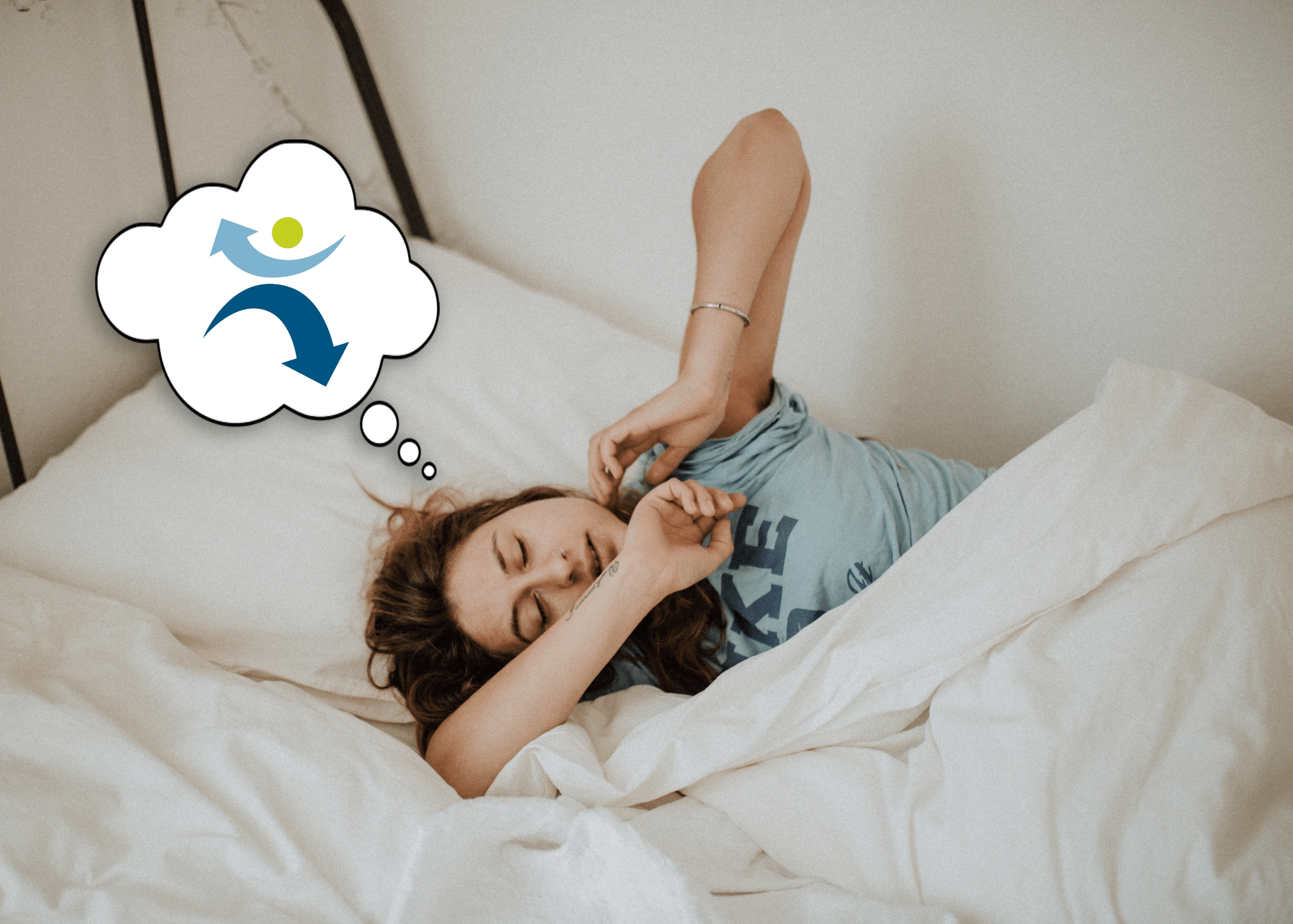How Sleep Affects Recovery
Sleep: The most overlooked method of recovery
As most of us know, it is recommended that a person gets 7-9 hours of sleep each night. However, do you know why sleep is so important? More specifically, why sleep is so essential for recovery after an injury or surgery?
Sleep does many things. It’s not just important for recovery, it can decrease your risk of injury, reduce persistent pain, boost your immune system, improve energy levels, and even help you perform better. Everything in the body, including your brain and central nervous system, must recover after encountering stressors such as intense training, surgery, or injury.
The good news is that one night of poor sleep won’t have much of an impact on your recovery or performance status. It’s when you have trouble sleeping for several days at a time that it really starts to impact performance and progress. Muscles and tissues repair and rejuvenate as we sleep. Therefore, too much exercise and too little sleep can result in what is known as overtraining which can then result in injury.
The science behind why sleep is so important:
Lack of sleep can impact healing, muscle recovery, inflammation, and cellular regeneration. Sleep is a time when your brain is actively working to remove unwanted metabolic waste while also enhancing blood flow to the cells. More specifically, during deeper stages of sleep, blood flow to your muscles is increased. Blood flow is how we transport oxygen and nutrients that aid in recovery, cognitive performance, and the repair of muscles and cell regeneration to the affected parts of our bodies. A full night’s sleep allows time for anabolic hormones to repair tissue, while conversely, insufficient sleep could result in higher levels of catabolic hormones which are responsible for energy production.
During the deep and dreamless sleep stage called non-REM sleep, the pituitary gland releases growth hormones that stimulate muscle repair and growth as well as assist in raising other hormones levels such as insulin-like growth factor hormone or IGF-1. Without enough rest, the secretion of this hormone declines which leads to harder and longer recovery times. Therefore, the longer the period of sleep, the more time for muscles to regenerate and grow. Prolactin is another hormone most prevalent during sleep that helps regulate inflammation. If you don’t get enough sleep, you’re more likely to experience inflammation in the body which can make recovery more difficult and increase the risk of further injury.
Lack of sleep or the inability to stay asleep can be due to increased activity of the sympathetic nervous system and higher levels of cortisol also known as the stress hormone. Cortisol helps convert the free fatty acid into energy for exercise. However, when glycogen is in low supply, cortisol can convert amino acids into ATP which inhibits muscle growth.
When stress and poor sleep patterns interfere with physical recovery, it can lead to a cycle of burnout and fatigue that affects overall health and well-being. The body’s natural rhythms are disrupted, which makes it harder to maintain the necessary balance for muscle regeneration and growth. Seeking professional support from a therapist can be a helpful step in managing the effects of stress on both sleep and recovery. Therapists can guide individuals through mindfulness, relaxation techniques, and cognitive-behavioral strategies to reduce stress and promote better sleep hygiene.
For those who find themselves struggling with persistent sleep issues or heightened stress levels, reliable solutions at TCAPC can offer a comprehensive approach. Therapists can work with clients to address the root causes of disrupted sleep, whether it’s stress, anxiety, or trauma, and develop a personalized plan to improve sleep patterns. With the right therapeutic interventions, individuals can break the cycle of poor sleep, restore their body’s natural healing processes, and ultimately support their physical recovery.
Tips on how to combat sleeplessness/trouble falling or staying asleep:
– Don’t eat right before bed. If your body is trying to digest while also trying to sleep, your sympathetic nervous system (stress response) will be fighting with your parasympathetic nervous system (rest/relax response) which will most likely result in sleeplessness.
– Practice relaxation techniques like deep breathing or meditation.
– Stretch before bed to help your body and muscles relax.
– Limit screen time, including watching TV or playing games/scrolling on your phone.
– Create a pre-sleep routine. Going through the same routine every night can help let your body know that it’s time for bed and help you wind down at the end of the day.
– Supplements can also help, but remember to take the importance of science-backed products into consideration.
- Melatonin: A hormone that is released by the pineal gland at night that is known for controlling sleep-wake cycles. It’s important to choose high-quality, science-backed products to ensure safety and effectiveness. Fortunately, melatonin is not banned in the uk, and many people use it as a natural remedy for insomnia or jet lag. However, it’s always best to consult a healthcare provider before starting any supplement, as individual needs can vary, and they can provide guidance on the proper dosage and timing.
- Magnesium glycinate or citrate: Changes the number of neurotransmitters firing that have a calming effect on the body and also aids in muscle recovery and digestion.
- CBD: For some, it can help feel calm, relax muscles, decrease pain, and have anti-inflammatory effects. It does not work for everyone though.
- Kratom: Derived from the leaves of the Mitragyna speciosa tree, kratom interacts with the body’s receptors to promote a sense of well-being and relaxation. The Kratom Connection offers a range of high-quality kratom products sourced from the best growers worldwide, ensuring you have access to reliable options for stress relief. As with any supplement, it’s important to start with a low dose and monitor how your body responds, allowing you to tailor your use of kratom to fit your individual needs.
- Valerian root: Herb to improve quality of sleep and reduce anxiety.
- GABA: Gamma-aminobutyric acid: A naturally occurring neurotransmitter that sends the brain signals to calm down.
- Magic mushrooms: Known for their psychedelic effects, some research suggests they may help with mental health issues and improve mood. For more information on the potential benefits of such supplements, you might explore options like those found at https://elevatedyou.cc/, though they are not widely accepted or legal everywhere. It’s important to consult with a healthcare professional before considering any new supplements, especially those with psychoactive properties.
- L-theanine: An amino acid found naturally in green tea that blocks receptors in the brain that initiate stress responses.
Finally, it is important to note that proper sleep also influences the body’s response to stress and nutrition and helps with decision-making. Research shows that men and women deprived of sleep were much more likely to make poor nutrition choices due to a decrease in executive function. This is good to keep in mind when thinking about your goals and habits and wondering why you might not be making the progress you would like.
References:
Emma Loewe mbg Senior Sustainability Editor Emma Loewe is the Senior Sustainability Editor at mindbodygreen and the co-author of The Spirit Almanac: A Modern Guide To Ancient Self C. (2021, December 21). Our definitive list of the 18 best (science-backed) sleep supplements*. mindbodygreen. Retrieved January 4, 2022, from https://www.mindbodygreen.com/articles/supplements-for-sleep
How sleep helps your body recover from injury: Orthopedic Blog. OrthoCarolina. (n.d.). Retrieved January 4, 2022, from https://www.orthocarolina.com/media/sleep-the-secret-ingredient-of-injury-recovery
Pete McCall Health and Fitness Expert Pete McCall. (n.d.). 7 benefits of sleep for exercise recovery. ACE. Retrieved January 4, 2022, from https://www.acefitness.org/education-and-resources/lifestyle/blog/7818/7-benefits-of-sleep-for-exercise-recovery/
Stull, K. (n.d.). The importance of sleep and recovery. NASM. Retrieved January 4, 2022, from https://blog.nasm.org/exercise-programming/the-importance-of-sleep-and-recovery

